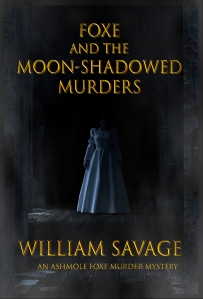
Smuggling is usually associated with the south coast of england, from Kent to Cornwall, where the crossing to the French coastline was shortest. Yet East Anglia was also a popular haunt of these criminal gangs. Norfolk, in particular, offered long stretches of lonely beaches with easy access to the land behind. It was also barely one hundred miles across the sea to the coasts of Holland and Flanders.
The heyday of Norfolk smuggling probably came in the 1770s and 1780s, when high taxes were imposed on ‘luxury’ items like tea, gin, brandy, silks and lace to pay for England’s endless wars with continental Europe and America. It seemed to take a while before the authorities worked out that high taxes on basically cheap items meant huge returns for the smugglers: more than enough to make up for the occasional losses to zealous Revenue agents.
Even when goods — or persons — had been seized, holding them was quite another matter, as this newspaper excerpt shows:
The Norfolk Chronicle, 18th January, 1783
Friday last was committed to the Castle1 by M. F. RISHTON, Esq., Thomas FRANKLYN, of Lynn, fellmonger2, a noted smuggler, charged on the oaths of William SPENCER and Thomas ABBOTT, excise officers, and John BOUTELL, a private of the 11th regiment of dragoons, with having, in the morning of Friday the 31st of last month, aided and assisted by divers other persons unknown, armed with fire-arms and other offensive weapons, rescued at Thornham twelve bags of tea, each containing 26 pounds [in weight], after the same had been lawfully seized by Robert BLISS, supervisor, John BANHAM, and the above officers, and also with having violently assaulted the said Mr BLISS, desperately wounding him, and threatening to murder the other officers.
Another account says, last week the following melancholy accident happened at Lynn, in Norfolk: – One FRANKLYN, a noted smuggler, being pressed by the men on that service, was rescued by one of his men who met them; upon this they pressed the man for setting his master at liberty, and thereupon FRANKLYN, for the better enabling him to set his man at liberty, went home for a bludgeon, and meeting them in the market-place, he knocked down one of them with the bludgeon, and set his man at liberty, and both walked home to FRANKLYN’s house, defying the gang. And about three hours after this, the gang [the pressgang], together with a file of soldiers, came to FRANKLYN’s house to take him, whereupon FRANKLYN fired at them two or three times through the door; upon this, the officers commanded the soldiers to fire, who did, and shot one NICHOLS, a taylor [sic], dead; lodged a ball in the arm of a woman, and grazed the temples of another, and after some resistance took him [presumably Franklyn], and he was on Friday last conveyed to Norwich castle.
Even today, there’s a tendency to think of smugglers as romantic figures, whose only crime was against the government and the Revenue. This is quite false. Smuggling gangs were usually ruthlessly efficient, using bullying to deter juries from bringing in convictions and taking severe revenge on informers. As the extract above shows, they had no hesitation in resorting to violence when it suited them. They were much more like the Mafia than a few local men bringing in the occasional keg of spirits or bag of tea.
That they succeeded for so long has parallels with drug dealers today. In both cases, enough people — especially, the wealthy — wanted to buy what they offered to drive up prices and produce vast profits. At the same time, a general public opposition to anything that acted in restraint of trade made the taxes imposed on the goods being smuggled seem unfair and arbitrary. In Norfolk, getting cheap goods seemed to blind even the most respectable to the actual nature of the trade. Men from Sir Robert Walpole, the first Prime Minister, to Parson Woodforde happily bought from the smugglers for their personal needs, while decrying the trade in public.
When taxes were reduced to more acceptable levels and enforcement made more effective, much of the trade died out. Perhaps that’s why, with the added glamour of hindsight and Hollywood, those who brought in “…brandy for the parson and baccy for the clerk …” are still regarded as mostly harmless today.


